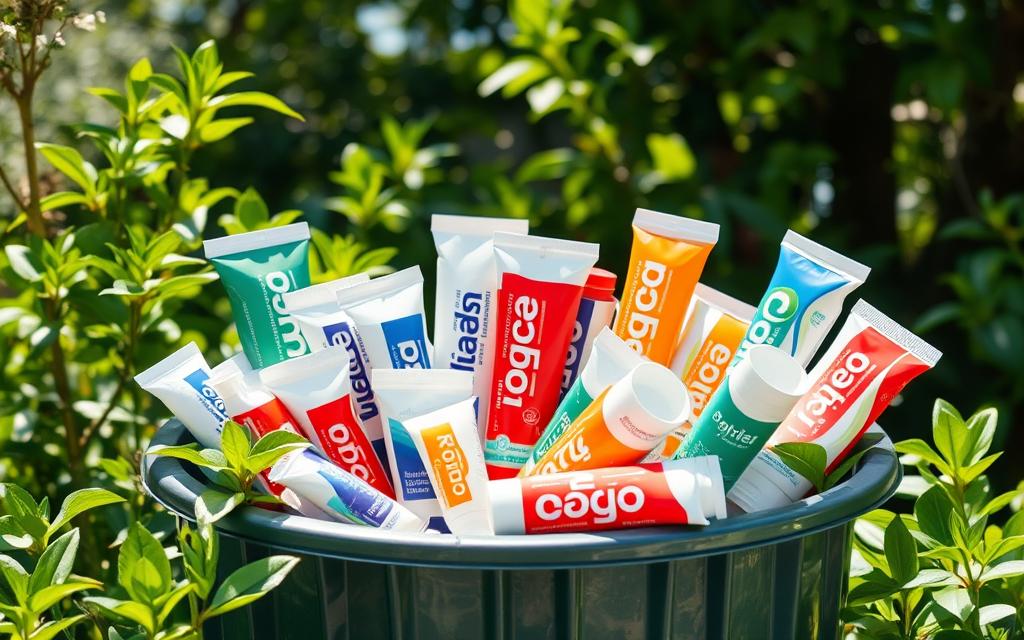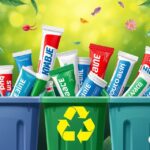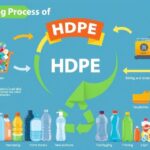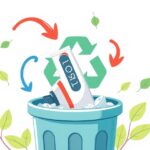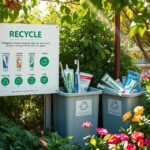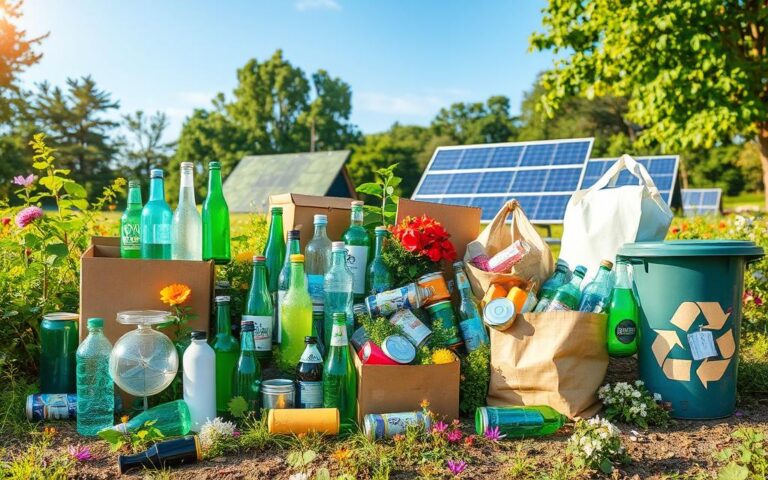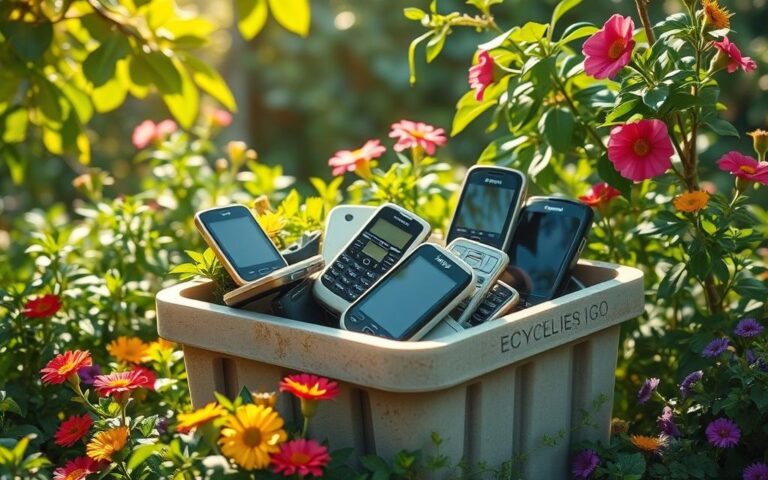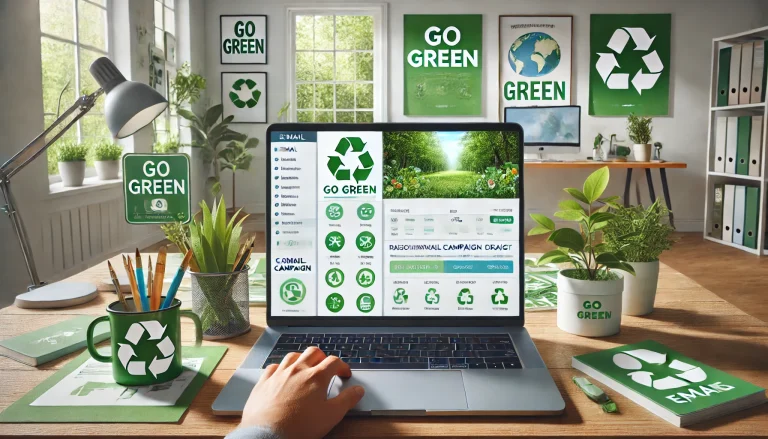Can Toothpaste Tubes Be Recycled? Sustainable Options
Many people wonder how to recycle toothpaste tubes right. Most tubes are made of different plastics and aluminium. This mix makes recycling hard. But, there’s hope thanks to new efforts for sustainable oral care.
Companies like Colgate and TerraCycle are leading the way. They offer new solutions for this problem. With their help, choosing eco-friendly oral care products is easier. And you help the planet too.
Since 2014, Colgate has worked on making recyclable toothpaste tubes. In 2019, they introduced a tube made from High-Density Polyethylene (HDPE). They’ve also joined forces with over 15 groups. Their goal is to promote eco-friendly toothpaste options.
This move shows how important recycling is in fighting environmental problems. It’s vital to support these eco-friendly initiatives.
Want to learn more about the types of materials in toothpaste tubes? And how to recycle them? Check out our full guide on recycling options.
Understanding Toothpaste Tube Materials
Toothpaste tubes are at the heart of sustainability talks due to the materials they’re made from. It’s important to know about the varied types of tubes and their materials to tackle plastic waste issues. Traditional tubes are mostly plastic with some aluminium, making recycling harder.
Common Materials Used in Toothpaste Tubes
The main materials in toothpaste tubes are:
- Polyethylene (PE)
- High-Density Polyethylene (HDPE)
- Polyvinyl Chloride (PVC)
These substances make the tubes durable and flexible, important for toothpaste packaging. However, they pose multi-material recycling challenges. Since the tubes use different materials, standard recycling struggles to handle them.
The Impact of Multi-Material Design on Recycling
Combining polyethylene with aluminium makes recycling tough. Recycling places often can’t sort or process different materials together. Therefore, many toothpaste tubes end up in landfills.
Colgate is taking steps to solve these problems. They’ve made a recyclable tube from HDPE laminate, a big breakthrough. This tube works well with recycling systems and is easy to use and throw away.
By working with groups like Plastics Recyclers Europe, Colgate is helping ensure these tubes fit into recycling streams. This effort is aimed at improving our environment.
| Material | Properties | Recyclability |
|---|---|---|
| Polyethylene (PE) | Flexible, lightweight | Difficult when mixed with other materials |
| High-Density Polyethylene (HDPE) | Sturdy, squeezable | Potentially recyclable if properly processed |
| Polyvinyl Chloride (PVC) | Durable yet inflexible | Not widely recyclable |
Both companies and people have a big role in pushing recycling and cutting down plastic waste from toothpaste tubes. Knowing about these materials and what they mean for our planet can lead to better choices for the environment.
Can Toothpaste Tubes Be Recycled?
Many people don’t know the challenges of recycling toothpaste tubes. Learning about these difficulties and the recycling process helps us choose better oral care products.
Recycling Challenges Specific to Toothpaste Tubes
Toothpaste tubes are often made of different materials. This makes recycling them hard. Most local councils won’t take them in standard recycling bins because they require special processing.
The mix of plastics and laminates in the tubes is a big problem. After use, the leftover toothpaste also makes it hard to clean these tubes properly. This prevents them from being recycled easily.
Current Recycling Practices for Toothpaste Tubes
But, there is some good news. Some brands, like Colgate, are making toothpaste tubes from recyclable HDPE plastic. As more companies do this, recycling these tubes becomes easier.
There is also a growing trend towards better toothpaste tube recycling. TerraCycle’s programmes are a great example. They let people send back their used tubes to be recycled responsibly.
Through TerraCycle, used tubes are sorted and turned into plastic pellets. These pellets then help make new products.
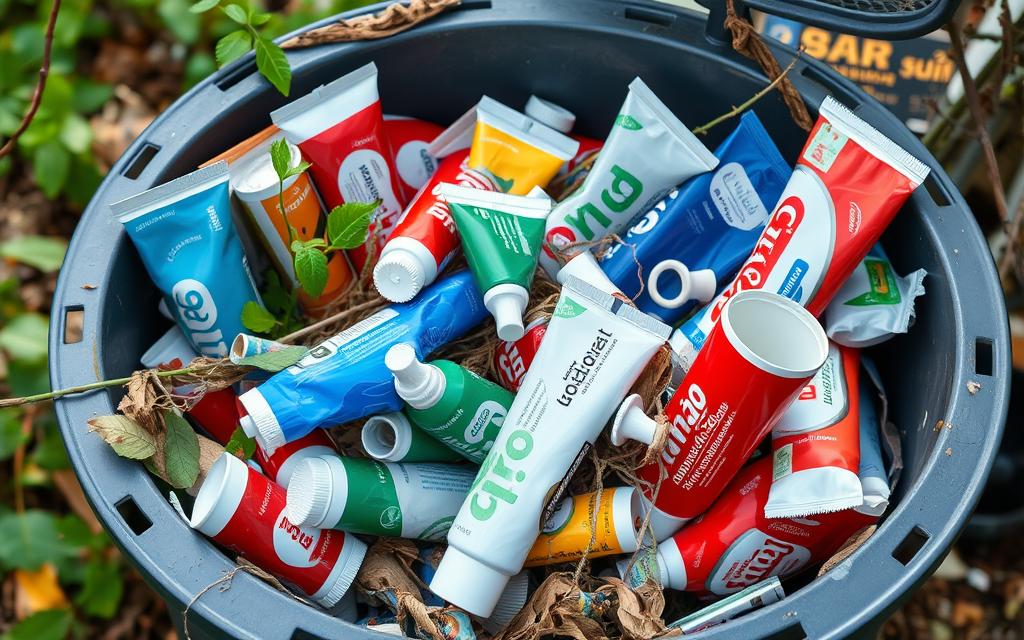
The Environmental Impact of Non-Recycled Toothpaste Tubes
Many toothpaste tubes end up in landfills every year, raising big environmental concerns. Around 3.6 billion people worldwide use toothpaste. This leads to about 20 billion toothpaste tubes being made each year. If placed end-to-end, these tubes could stretch for about 75,000 kilometres. This shows how big the waste problem is.
Statistics on Toothpaste Tube Waste
The making and throwing away of toothpaste tubes are big environmental issues. The toothpaste market was worth $18.7 billion in 2023 and is still growing. As production increases, so does waste. It’s estimated that toothpaste tube production uses 500 million litres of oil yearly. This contributes to our use of non-renewable resources.
In the United States, only 30% of HDPE toothpaste tubes are recycled. This means around 14 billion tubes go to landfills each year. Plus, about 10 million tons of plastic end up in the oceans yearly, including toothpaste tubes. These facts show we urgently need solutions to this problem.
The Long Decomposition Process of Toothpaste Tubes
The time it takes for toothpaste tubes to decompose is worrying. One tube can take over 500 years to break down. As they decompose, they turn into microplastics that pollute soil and water. The mix of plastic and aluminium in the tubes makes recycling harder. This long-term issue affects our environment greatly.
Knowing about toothpaste tube waste and their long decomposition is important. It’s vital for both consumers and makers. As people become more aware, finding alternatives that lessen waste and environmental damage is key.
Sustainable Alternatives to Traditional Toothpaste Tubes
As people become more eco-aware, they look for green toothpaste alternatives. Many are moving away from regular toothpaste tubes. These often end up in landfills. Brands like Colgate are now using recyclable HDPE plastic for their packaging.
Recyclable Toothpaste Tube Options
Many companies are now offering recyclable toothpaste tubes. This reduces the environmental impact of oral care products. For example:
- David’s Natural Toothpaste – Uses metal tubes that can be recycled.
- The Humble Co. – Has toothpaste in metal tubes and tablets, with or without fluoride.
- Bestowed Essentials – Offers toothpaste powder in jars made from 50% recycled glass.
Exploring Toothpaste Tablets and Natural Ingredients
Toothpaste tablets are becoming a popular green choice. They have recyclable packaging and often include natural ingredients. They are great for travel and help save water. Some tablets even have activated charcoal for better teeth whitening.
Making your own toothpaste is another green solution. You can use baking soda, coconut oil, and peppermint oil. These natural ingredients are good for the planet. You can also reuse the packaging from toothpaste tablets.
| Product | Type | Packaging | Fluoride Options |
|---|---|---|---|
| David’s Natural Toothpaste | Traditional Tube | Metal | Yes |
| The Humble Co. Toothpaste Tablets | Tablet | Recyclable | Both |
| Bestowed Essentials Toothpaste Powder | Powder | Glass | No |
| Huppy Toothpaste Tablets | Tablet | Refillable (Glass/Tin) | Yes |
| Unpaste Toothpaste Tablets | Tablet | Compostable | No |
Choosing these innovative products helps promote sustainability in oral care. It also matches the growing desire to lessen environmental harm.
Oral Care Product Mail-in Recycling Programs
Companies are finding new ways to deal with oral care product waste. They now offer mail-in recycling services for items like toothbrushes and toothpaste tubes. This helps cut down on plastic waste and promotes sustainability in oral care.
TerraCycle’s Oral Care Recycling Programme
TerraCycle leads with a recycling programme for oral care items. This includes toothbrushes, toothpaste tubes, and floss containers. People can mail their used products to TerraCycle for recycling, which keeps them out of landfills and helps create new materials.
Other Brands Supporting Recycling Initiatives
Colgate and Tom’s of Maine are also focusing on recycling. Colgate’s programme lets you recycle toothpaste tubes and brushes. Tom’s of Maine works with TerraCycle to recycle dental care products. Other brands are working on making their products more recyclable.
| Brand | Recycling Programme | Products Accepted |
|---|---|---|
| Colgate | Oral Care Recycling Program | Toothpaste tubes, toothbrushes, toothpaste cartons |
| Tom’s of Maine | National Recycling Program | Toothbrushes, toothpaste tubes, floss containers |
| Oral-B | “Brush. Rinse. Repeat.” Program | Toothbrushes, brush heads, toothpaste tubes |
| Preserve | Gimme 5 Recycling Program | Various #5 polypropylene plastics (including toothbrushes) |
The oral care industry is becoming more aware of the importance of recycling. Brands that support recycling show that sustainable practices are achievable. By joining these programmes, people can play a big role in reducing waste and protecting our planet.
Conclusion
We’re at the end of our journey on recycling toothpaste tubes. The way traditional packaging is made creates big problems for the environment. Recent court cases, like the one against Colgate-Palmolive, have brought up issues. They show there’s a gap between what companies say about recycling and what’s actually possible.
But, there’s hope. Colgate and other big brands are making tubes from a single material now. This type of tube is easier to recycle. Thanks to efforts to teach customers and work with recycling centers, we’re moving toward less waste in dental care.
We all have a role in making things better. When we choose to recycle and support green products, we make a big difference. More and more companies are getting on board with this idea. Together, we’re working towards a future with less plastic waste, for a cleaner, healthier earth for everyone.
FAQ
Can all types of toothpaste tubes be recycled?
Not every toothpaste tube is recyclable in standard programs. This is because of their mixed materials. But, companies like TerraCycle offer specific recycling services for them.
What materials are commonly found in toothpaste tubes?
Toothpaste tubes are mainly made of plastics and aluminium. Plastics include polyethylene (PE), polyvinyl chloride (PVC), and high-density polyethylene (HDPE).
Why are toothpaste tubes challenging to recycle?
Their mix of materials and leftover toothpaste makes recycling hard. Most local programs don’t accept them as the materials need separate processing.
What happens to toothpaste tubes if they are not recycled?
Tubes not recycled often go to landfills. There, they may take over 500 years to break down. This adds to major plastic waste and environmental problems.
Are there any eco-friendly alternatives to traditional toothpaste tubes?
Yes, sustainable options exist. Toothpaste tablets, with recyclable packaging, and homemade toothpaste reduce waste.
What is the process involved in recycling toothpaste tubes through programs like TerraCycle?
TerraCycle shreds the tubes, cleans them, and turns the materials into pellets. These pellets are then used to make new products. This supports eco-friendly oral care.
How can consumers participate in recycling their oral care products?
People can use mail-in programs from TerraCycle. This lets them send back used toothpaste tubes and other oral care items for recycling.
Which brands are taking steps towards more sustainable packaging for toothpaste?
Brands like Colgate and Tom’s of Maine are now using recyclable materials such as HDPE plastic. This reduces their environmental impact and promotes recycling.

